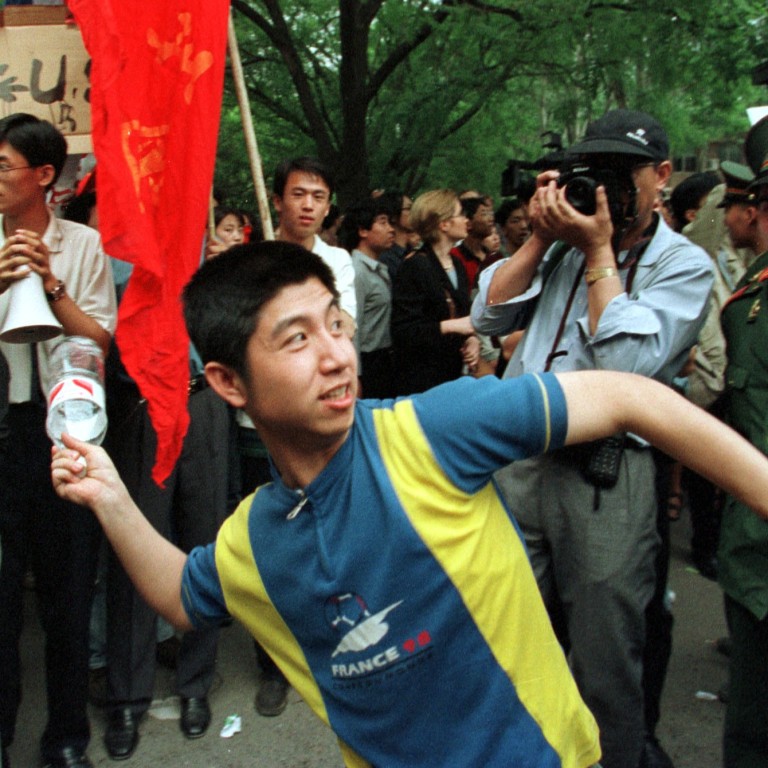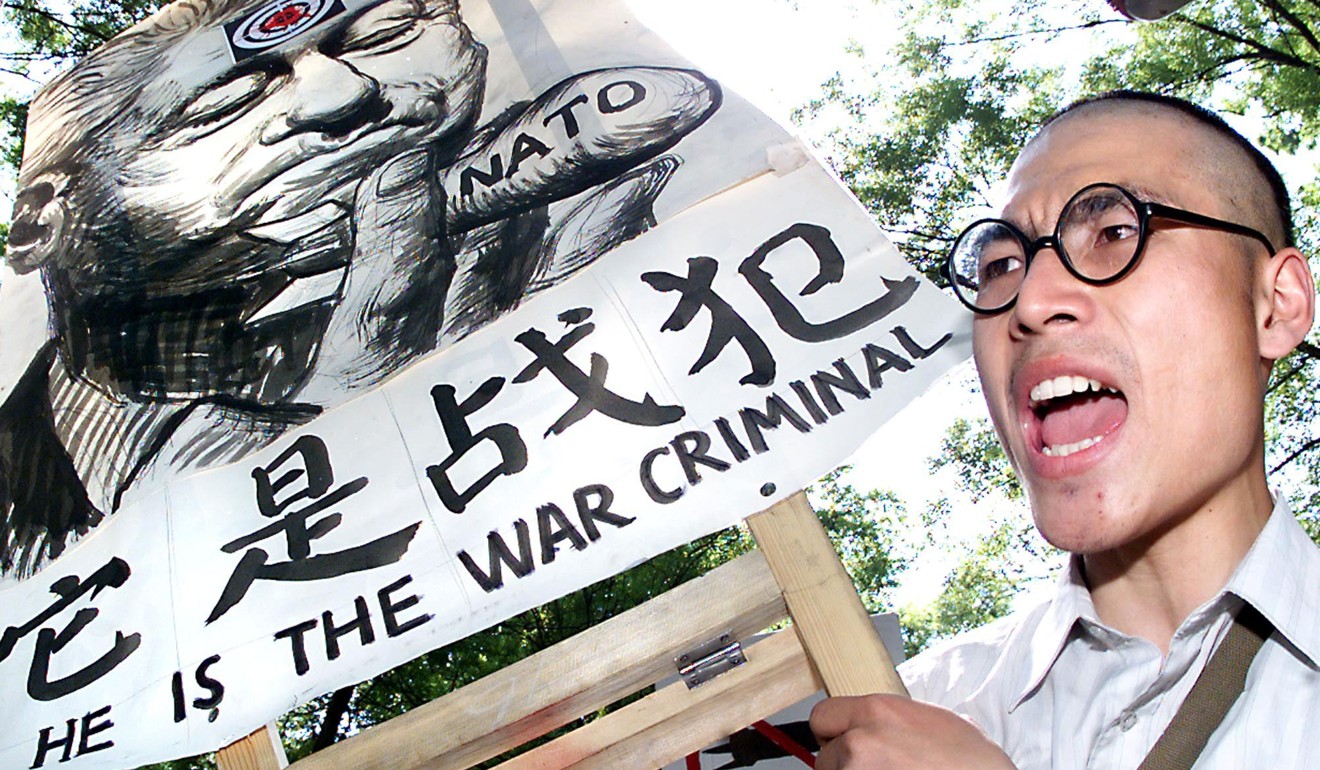
US tariffs threat strikes raw nerve on 20th anniversary of Nato bombing of Chinese embassy in Serbia
- Internet users see trade war as challenge to a Chinese sovereignty that has grown strong in the two decades since journalists perished in US-led strike on Belgrade
Nationalist sentiment is brewing on Chinese social media after the Office of the US Trade Representative chose Wednesday – the 20th anniversary of the bombing of the Chinese embassy in Serbia during the Kosovo conflict – to announce increased tariffs on US$200 billion worth of Chinese goods.
In a tweet on Wednesday, US President Donald Trump reiterated his plan to increase tariffs as his officials planned to meet their Chinese counterparts on a deal to do away with them.
While the president and his trade representative made no connection between the date of the tariff increase and the Belgrade embassy bombing, internet users did.
“After one year’s negotiation, the US announces a hike in tariffs,” said a user on Weibo, one of the biggest social media platforms in China.
“Twenty years ago, the Chinese embassy in Serbia was bombed by the US … It’s clear why the US made the [tariffs] announcement at this time, but China is not the same as [it was] 20 years ago – now is not the time when anyone can push it around.”
Zhang Lifan, a Beijing-based political commentator, said opinion on the trade war from the Chinese establishment and the general public was diverse, but a resort to patriotic sentiment was a tried and tested means of uniting government and people.
“It’s the time to use nationalism to let everyone unite around the core leader when the trade talks are in crisis,” Zhang said.
Serbian victims feel forgotten 20 years after Nato ‘mistakenly’ bombed them
The bombing on May 7, 1999 killed three Chinese journalists and injured about 20 others.
The Chinese public was outraged and demonstrations that continued for days erupted across the country.
In Beijing, tens of thousands of demonstrators trapped US ambassador James Sasser inside his embassy and pelted the building with stones.
The US and Nato denied the bombing was deliberate – a claim that is debated 20 years later.

Chinese internet users are revisiting the story, with some saying China should no longer have to endure attacks on its citizens or sovereignty.
“Before, we were poor and weak and we had to suffer humiliation. As we’ve become rich and strong … we do not need to take it,” said a commentary on WeChat, China’s most popular messaging app.
“When the United States had sanctions on us before, we could only ‘swallow the broken tooth’ [suffer humiliation], but now if the US imposes sanctions we can take measures of our own,” it said.
US upping the ante but China ‘still has trade war cards it can play’
From Beijing, Chinese state media’s response was more measured.
In an article published on Thursday on Taoran Notes, a blog on WeChat linked to state media, there was a call to citizens to redouble their efforts to make their country strong.
“Back in that difficult moment [in the aftermath of the bombing] … there was one thing we persisted in unswervingly: [to] step up our own work and greatly enhance our economic strength, national defence and national cohesion,” the article, which was carried by state media including Xinhua and People’s Daily, said.
But the article, titled “If You Want To Talk, We Can Talk; If You Want a Fight, We Will Fight”, cited another bitter memory shared by China and the US – the Korean war.
“In almost three years of the Korean war, there were two [when China and the US] negotiated and fought at the same time,” it said highlighting that Beijing was prepared for a long fight over the trade war with the US.
“When [both sides finally] feel they have had enough of conflicts and success in communicating with each other [prevails], the time for a resolution will have come.”


